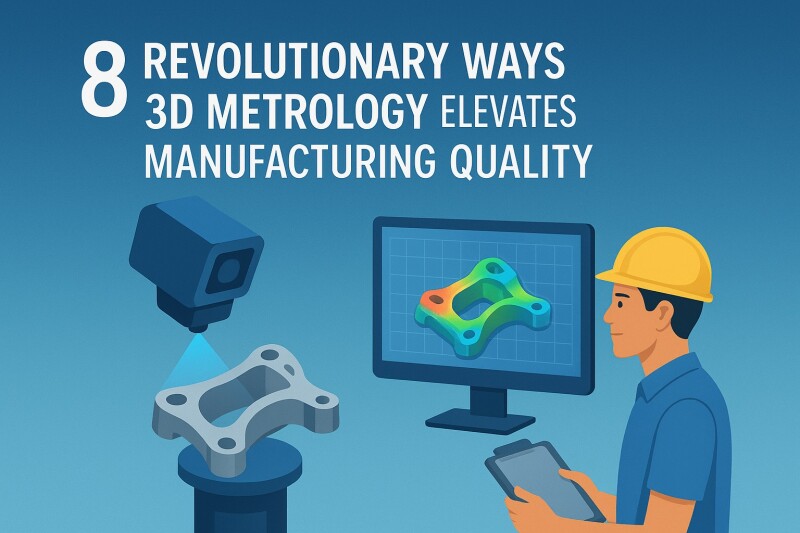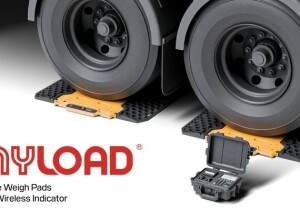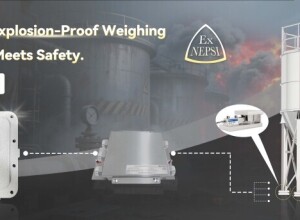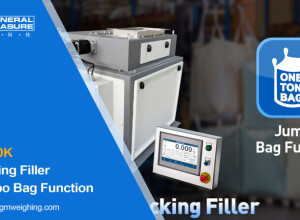8 Revolutionary Ways 3D Metrology Elevates Manufacturing Quality
Manufacturers must maintain tight quality standards to satisfy customers, prevent recalls and strengthen competitiveness. 3D metrology can help them achieve those goals. Metrology is the study of measurement, and producers have traditionally used tools such as calipers, coordinate measuring machines and micrometers to determine whether products meet specifications. 3D options utilize scanners and similar devices to gather more comprehensive and reliable information.
3D metrology can help manufacturing leaders reduce errors, raise productivity, meet expectations and achieve many other goals. How does 3D metrology improve manufacturing processes?
Elevates Accuracy
3D metrology allows people to measure complete 3D surfaces instead of numerous separate sections of an item. This improvement enhances accuracy, particularly when working with larger products or those that require multiple complex measurements.
Today’s advanced 3D metrology tools also minimize mistakes due to operator distractions, tiredness or inexperience. Many use structured light and lasers to capture measurements with minimal human intervention, helping manufacturers achieve more consistent and dependable results.
Some 3D scanners also include artificial intelligence algorithms and features to improve performance. These tools become even more accurate if companies use them to check the same products over months and years.
Enables Automation
Manufacturing automation enables people to perform tasks more efficiently and accurately. They can also frequently get the same or better results after deploying the technologies, even with a reduced labor force. Although many decision-makers are interested in automating relevant processes, some may feel uncertain about how to begin.
3D metrology offers numerous attractive opportunities, such as using collaborative robots and automated scanners to take measurements with little to no human oversight. Because advanced machines can hold products in place for measurement, this option can save time and minimize mistakes.
Although automation may require significant upfront investments, such as altered factory layouts and dedicated worker training, these often pay off over time, especially if workers have historically spent a large amount of time measuring products for quality control. Leaders can also gradually implement automated processes and scale up once those efforts create measurable improvements.
Allows Portability
Many 3D metrology tools are available in handheld versions, allowing users to utilize these options anywhere. This flexibility supports companies with multiple sites, especially if it is unaffordable for them to install stationary equipment in all the locations.
Portable scanners make it easier to check large or awkwardly shaped items, such as aerospace components. Many models feature specific capabilities that enable them to capture accurate measurements for products with dark or shiny surfaces, providing manufacturers with the repeatability they need to meet internal quality control standards or industry regulations. Some also help people measure narrow or hard-to-reach areas.
Handheld 3D metrology scanners also offer numerous viable applications outside quality control. Design teams can use them to reverse-engineer products or check prototypes. These possibilities make the tools good investments.
Creates Digital Records
Manufacturers also appreciate 3D metrology tools because they support digital recordkeeping. The options vary depending on the purchased models, but many store files that people can transfer elsewhere later.
This documentation helps factories satisfy regulators and increase customer trust by following specified quality control measures. Decision-makers may import the information into external tools, such as data analysis platforms. They can then determine if relevant statistics have improved or worsened and set targeted goals if necessary.
Manufacturers may also use these records to create digital twins. Those resources allow them to see versions of the measured items they can manipulate in virtual environments before committing to changes in real life.
Boosts Productivity
Numerous manufacturing companies face ongoing workforce shortages driven by several challenges. When longtime employees retire, replacing them can take longer than expected. Businesses also don’t always embrace opportunities to transfer veterans’ knowledge to newer workers through mentoring programs.
Because younger generations may not view these careers as appealing or believe they are too dangerous, factories often have roles open for weeks or months, even if their hiring processes are generally efficient. Outreach programs help, but are not immediate fixes.
These difficulties may mean that remaining employees must bear heavier workloads while maintaining the same quick pace or an even faster one. 3D metrology products support workers by giving reliable and repeatable results for every measurement. Many tools are also user-friendly, which reduces the learning curve for effective use.
Facilitates Scalability
Manufacturing professionals seek viable ways to scale up their operations to meet increased demands, maintain competitiveness and stay available despite industry pressures. Whether companies become busier due to changing regulations, seasonality or other factors, 3D metrology tools support more demanding workflows.
Many AI-powered options adapt to different applications and production output levels. Some also optimize setup processes, letting people measure items sooner without compromising quality.
As 3D metrology services and products become widely available and affordable, decision-makers will feel more confident about bringing them into their production facilities and getting meaningful results. Some may also choose to install the equipment during quieter periods so workers understand how to use it once demands rise.
Requires No Surface Contact
Unlike traditional tools, such as calipers, some 3D metrology products operate without needing physical contact with what they measure. That characteristic makes them ideal for products with delicate or textured surfaces that might become damaged or result in inaccurate readings if conventional options are used.
Contact-free options typically involve scanners that collect numerous samples from objects and use the data to create point clouds. Those can then extrapolate the items’ geometries, shapes and textures. These devices typically shine laser lines or white light onto the products’ surfaces.
Contact-based alternatives also exist. They require objects to rest on flat surfaces while fixtures support them. That ongoing contact facilitates the probing necessary to obtain the measurements.
Minimizes Waste
Manufacturers, especially those with a lean methodology, continually evaluate the best ways to reduce waste. Improvements involve minimizing wasted time and reducing the number of items discarded because they do not meet quality standards. 3D metrology can address both of those areas.
Many tools automate parts of the measurement preparation process, reducing errors, rework and uncertainty. Because offerings that take 3D readings are more accurate than those that gather 2D data, people are more likely to detect issues faster. They can then engage in various corrective actions to reduce the likelihood of needing to discard items due to quality issues.
Less-experienced workers will be less likely to second-guess themselves if the 3D metrology products available to them store historical data and automate parts of the setup and measurement phases. They will feel more confident in the readings and their abilities, rather than wasting time unnecessarily verifying the measurements.
Which Companies Offer 3D Metrology Services?
Executives interested in experiencing the benefits of 3D metrology for their manufacturing operations should consider partnering with third-party providers. Representatives offering the best 3D metrology services can assess current manufacturing environments and explain how 3D measuring tools could bring competitive advantages.
Here’s where to start the search.
1. EDM Intelligent Solutions

EDM Intelligent Solutions is a 3D metrology company located in Illinois. Across more than two decades, its experts have become the preferred partners of clients in tight-tolerance manufacturing for products such as advanced aerospace components, medical devices, electronics, communication equipment and scientific instruments.
This brand’s metrology technicians and applications engineers work closely with clients to understand their specific project needs. These professionals also try, test and prove the systems used to support high-precision manufacturing requirements and repeatability.
Key Features
- A range of available equipment and assistance lets customers find the right solutions for their needs and budgets.
- The company uses an autonomous management system to track products, ensuring efficient and effective processes that representatives modify when necessary for optimal results.
- This company’s in-house 3D metrology services for form, difference and roughness measurements are ideal for manufacturers interested in experiencing the benefits without making substantial upfront investments.
2. SGS

For more than 145 years, SGS has established its reputation as a trustworthy testing, inspection and certification service provider. Business representatives cater to clients seeking 3D metrology support by bringing mobile coordinate measuring technology to their desired locations. This flexibility is ideal for manufacturers who are curious about the potential benefits and want to experience them before making further investments.
Besides offering numerous measurement and analysis services, SGS employees can develop concepts applicable to clients’ facilities, provide professional workforce training, suggest the best positions for production machines based on internal layouts and digitalize manufacturers’ products.
Key Features
- The company’s network comprises more than 2,500 facilities across 115 countries, positioning it well to serve customers regardless of their location.
- This brand’s training and consultancy services provide expert perspectives and tightened internal processes.
- Advanced laser-tracking technologies enable the measurement of hidden points for comprehensive results.
3. Applus+ Laboratories

Applus+ Laboratories offers 3D metrology services worldwide through its steadily expanding network of facilities and professionals. Manufacturers and others in industries such as renewable energy, construction and rail depend on this brand’s assistance to meet precision requirements.
The company offers high-precision equipment, personalized support and comprehensive after-sales assistance, such as calibration, installation and training. These possibilities help manufacturers feel well-prepared to reap the benefits of 3D measuring systems, regardless of their previous experience level.
Key Features
- This brand’s 3D-scanning capabilities achieve accuracy of up to 0.02 millimeters over 5 meters, making them ideal for producers who must maintain tight tolerances for demanding customers.
- The company can assist manufacturers in reconstructing components that lack computer-aided design files, allowing the reverse engineering of obsolete parts.
- The available portable measuring arms bring the advantages of 3D metrology services to any environment, resulting in maximum flexibility.
4. Metrologic Group

Metrologic Group creates, deploys and sells innovative and universally applicable 3D metrology solutions for manufacturers. The employees demonstrate their expertise in this brand’s key operating areas, which include software, equipment calibration, retrofitting and upgrades, and automated inspection opportunities.
Clients can request portable metrology services, professional training, digital twins and statistical analyses when engaging with the provider. The extensive offerings cater to numerous needs and enable producers to maintain better quality control. This company has a global presence, operating in over 35 countries and maintaining six sales offices worldwide.
Key Features
- This company has operated in the 3D metrology services market since 1980, making it a reliable choice.
- The business offers an end-to-end approach to enhancing 3D inspection workflows, supporting various quality control goals.
- The brand’s solutions support large-scale needs that some other competing options cannot.
Methodology
Brands appeared on this list based on their appropriateness for manufacturing clients, industry longevity and proven commitment to outstanding customer service. These qualities make decision-makers feel confident in seeking their services to boost quality control and other objectives.
FAQs
Getting answers to common questions before securing 3D metrology services can help manufacturing leaders get the best results when speaking to customer representatives.
What Should Manufacturers Discuss During Initial Consultations?
Manufacturers should give details about the types of products produced and in what volumes, specifying how metrology fits into current workflows. Information related to ongoing challenges can also allow company representatives to suggest the most suitable solutions.
How Can Manufacturers Remain Cost-Conscious When Seeking 3D Metrology Services?
The best approach is to provide honest information about how much the company can afford to spend early in the conversation with service providers, as these details set accurate expectations for everyone. Decision-makers may initially use 3D metrology services for a single product or assembly line before scaling up once the initial investments yield a return.
Should Manufacturing Leaders Seek Feedback From Workers Before Proceeding?
Yes, employees who use specialized equipment and take measurements daily have firsthand experience with challenges that may be unknown to their superiors. Input from these team members can shape discussions between 3D metrology service providers and manufacturing leaders, especially if potential customers intend to secure training, installation or consultancy assistance.
Start Improving Manufacturing With 3D Metrology Services
Today’s producers experience many challenges. Budgeting for 3D metrology services can give these professionals the quality, precision and productivity needed to impress clients, grow operations and enhance trustworthiness. Contacting specialty providers is a practical next step for interested parties.









































Interested? Submit your enquiry using the form below:
Only available for registered users. Sign In to your account or register here.